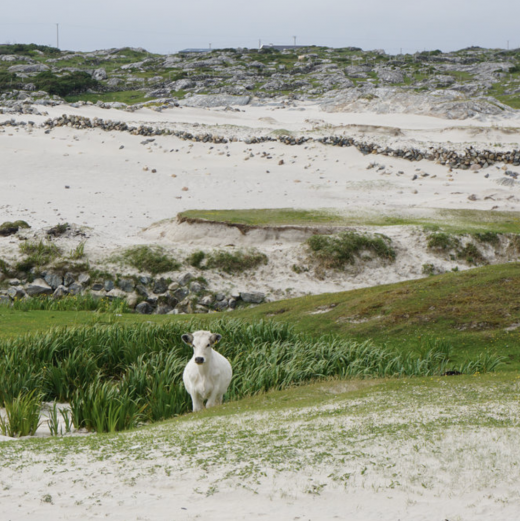There’s a curious video of a live performance from Queef (the collaborative project of Laney Mannion and Claire Guerin) performing at the Monk and the Nun festival in 2016. In a forest clearing, Mannion and Guerin hang chimes and bells from the branches, balance kalimbas on tree stumps, and feedback sounds of the natural world through portable amplifiers. It gives the impression of some middle ground between a biological field study and a meditative retreat: an exploration into the minutiae of the smallest, most familiar sounds that surround us. And through their album Presence, they attempt to bring this soft-eared approach to the listeners living room, via their own.
Opener ‘earbath’, which features warm chimes of vibraphone, soft atonal whistling, and the scrunching of paper, sets the tone for the rest of the album: a musique concrète collage of familiar sounds, both musical and not, and the initial effect is somewhat reminiscent of the Imaginary Landscapes John Cage would describe. On ‘into the long purr, hiss’, a music box playing ‘My Way’ gives way to a looped purring (a sound which loses its comfort when looped and attacked with blasts of high and low static), while lines from Mary Midgley’s Utopias, Dolphins and Computers is read. The section that the lines are taken from is quite revealing: a discussion on existential heroes and the wisdom of escaping from personal bonds. Mannion and Guerin show what side of the argument they favor while jamming along with folk music on the radio (once again reinforcing the Cage connection), breaking into laughter and joyful encouragement (“That’s the stuff!”): their sense of freedom does not come from isolation, but from how we interact with the world and people around us. This is mirrored somewhat in the wonderfully-titled closer ‘Saturday Night Bieber’, as Queef seem to make a game of trying to crack each other up with funny voices, after exhausting the musical potential of rubber balloons.
Presence is, to use that word again, a curious album: on face value it would seem to sit comfortably among the field recording experiments of artists such as Andrea Polli and Annea Lockwood, but the level of in situ improvisation, and in particular the amount of fund had while doing so, sets it apart. It is an album that requires a certain level of patience to appreciate: sounds are initially there to represent themselves, rather than to build to a conventional structure. Approaching with a curious ear will yield rewards however, as well as a newfound appreciation for the subtle sounds we take for granted in our periphery. As the album finishes you’ll relish the opportunity to hear the sounds of the trees, whether chimes are hanging from the branches or not. Will Abbott






